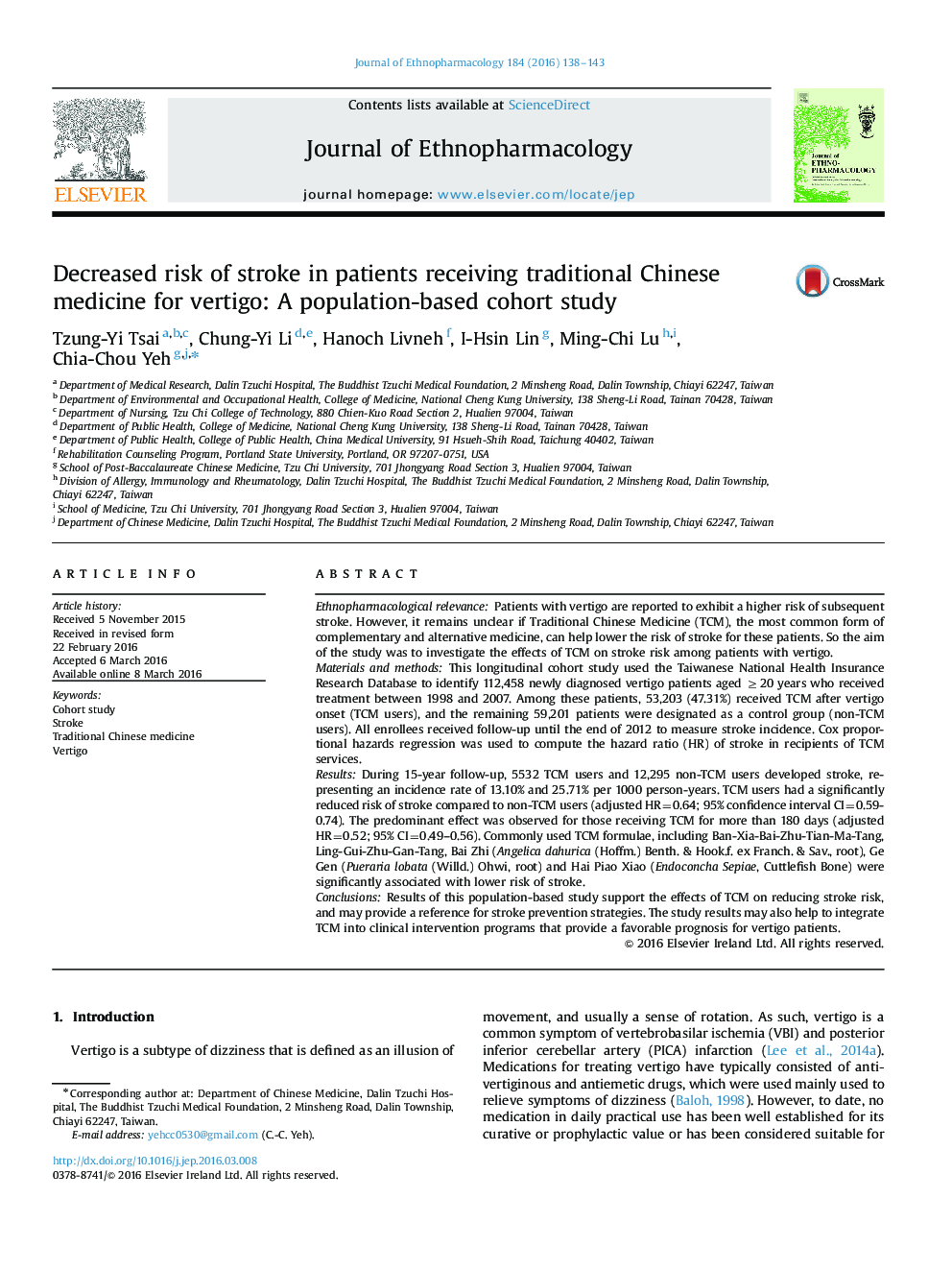| کد مقاله | کد نشریه | سال انتشار | مقاله انگلیسی | نسخه تمام متن |
|---|---|---|---|---|
| 2544784 | 1560378 | 2016 | 6 صفحه PDF | دانلود رایگان |
Ethnopharmacological relevancePatients with vertigo are reported to exhibit a higher risk of subsequent stroke. However, it remains unclear if Traditional Chinese Medicine (TCM), the most common form of complementary and alternative medicine, can help lower the risk of stroke for these patients. So the aim of the study was to investigate the effects of TCM on stroke risk among patients with vertigo.Materials and methodsThis longitudinal cohort study used the Taiwanese National Health Insurance Research Database to identify 112,458 newly diagnosed vertigo patients aged ≥20 years who received treatment between 1998 and 2007. Among these patients, 53,203 (47.31%) received TCM after vertigo onset (TCM users), and the remaining 59,201 patients were designated as a control group (non-TCM users). All enrollees received follow-up until the end of 2012 to measure stroke incidence. Cox proportional hazards regression was used to compute the hazard ratio (HR) of stroke in recipients of TCM services.ResultsDuring 15-year follow-up, 5532 TCM users and 12,295 non-TCM users developed stroke, representing an incidence rate of 13.10% and 25.71% per 1000 person-years. TCM users had a significantly reduced risk of stroke compared to non-TCM users (adjusted HR=0.64; 95% confidence interval CI=0.59-0.74). The predominant effect was observed for those receiving TCM for more than 180 days (adjusted HR=0.52; 95% CI=0.49–0.56). Commonly used TCM formulae, including Ban-Xia-Bai-Zhu-Tian-Ma-Tang, Ling-Gui-Zhu-Gan-Tang, Bai Zhi (Angelica dahurica (Hoffm.) Benth. & Hook.f. ex Franch. & Sav., root), Ge Gen (Pueraria lobata (Willd.) Ohwi, root) and Hai Piao Xiao (Endoconcha Sepiae, Cuttlefish Bone) were significantly associated with lower risk of stroke.ConclusionsResults of this population-based study support the effects of TCM on reducing stroke risk, and may provide a reference for stroke prevention strategies. The study results may also help to integrate TCM into clinical intervention programs that provide a favorable prognosis for vertigo patients.
Figure optionsDownload high-quality image (128 K)Download as PowerPoint slide
Journal: Journal of Ethnopharmacology - Volume 184, 26 May 2016, Pages 138–143
